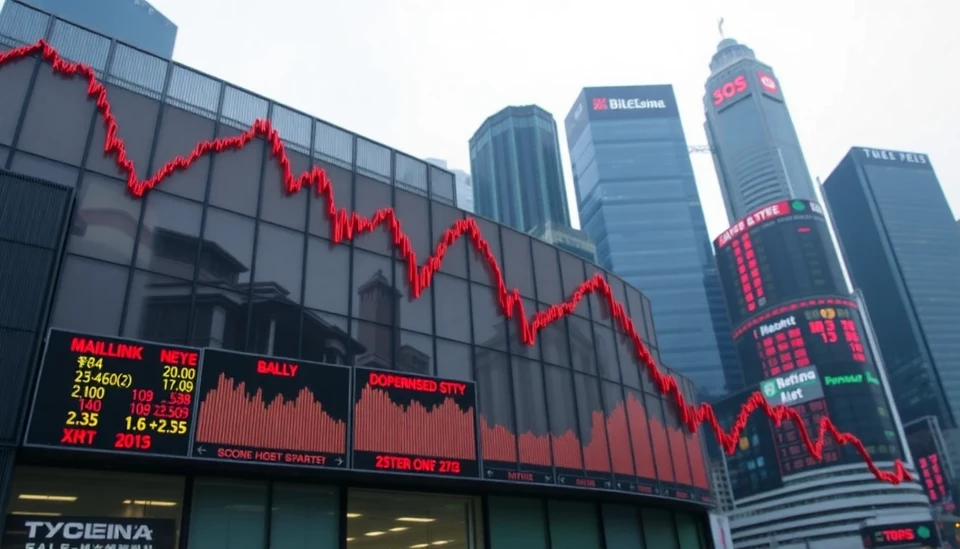
In a startling development, Asian stock markets experienced their most significant decline in over 14 years, driven by surging concerns over tariff implications and international trade tensions. The downturn has sent ripples through financial markets as investors reacted to the increasingly volatile scenario in global trade.
Major indices across the region took a hit as investors fled to safer assets, ultimately spurring a harsh sell-off that saw some benchmarks plummet drastically. This sudden turn of events comes as governments worldwide grapple with rising inflation and slowing economic growth, further exacerbated by the looming threat of new tariffs that could disrupt trade dynamics.
The Nikkei 225 in Japan plummeted significantly, closing down by around six percent, marking its worst one-day performance since the 2008 financial crisis. Similarly, the Hong Kong Hang Seng Index faced substantial losses, declining by over five percent, which reflects growing investor anxiety. The South Korean KOSPI also recorded a sharp drop, contributing to the widespread market distress seen across major Asian markets.
Market analysts highlight that the recent statements from various government officials regarding potential tariff hikes have fueled investor uncertainty. The fear of prolonged trade disputes continues to loom large, impacting risk sentiment and leading investors to reevaluate their positions in equities.
As a response to the turbulent market climate, many investors are pivoting towards gold and other safe haven assets. The traditional safe havens have seen increased demand, suggesting a reluctance to engage in equities amidst the rising geopolitical tensions. Volatility has surged, with investor sentiment oscillating between hope for negotiations and fear of prolonged conflict.
This drastic market fluctuation underscores a concerning trend: economic recovery efforts could be hindered by a lack of stability in international trade frameworks. With key economies deeply intertwined, the ramifications of these tariff developments could extend beyond Asia, potentially affecting global market stability in the months to come.
In summary, the sharp decline of Asian stock markets, as evidenced by recent trading figures, parallels a broader narrative of uncertainty and trepidation surrounding international trade. Investors are left to navigate through a complex web of economic indicators and political dynamics that continue to shape the financial landscape.
This recent plunge highlights the need for vigilance amongst investors and policymakers alike, as the coming days and weeks will be crucial in determining how the trade disputes will evolve and affect economic conditions globally.
As the situation continues to develop, market watchers will need to keep a close eye on further announcements and negotiations between influential trading nations, as these factors will play a pivotal role in recovering from the catastrophic losses recently suffered across Asian stock indices.
#AsianStocks #MarketCrash #TariffConcerns #Investors #EconomicImpact #TradeTensions
Author: Laura Mitchell




